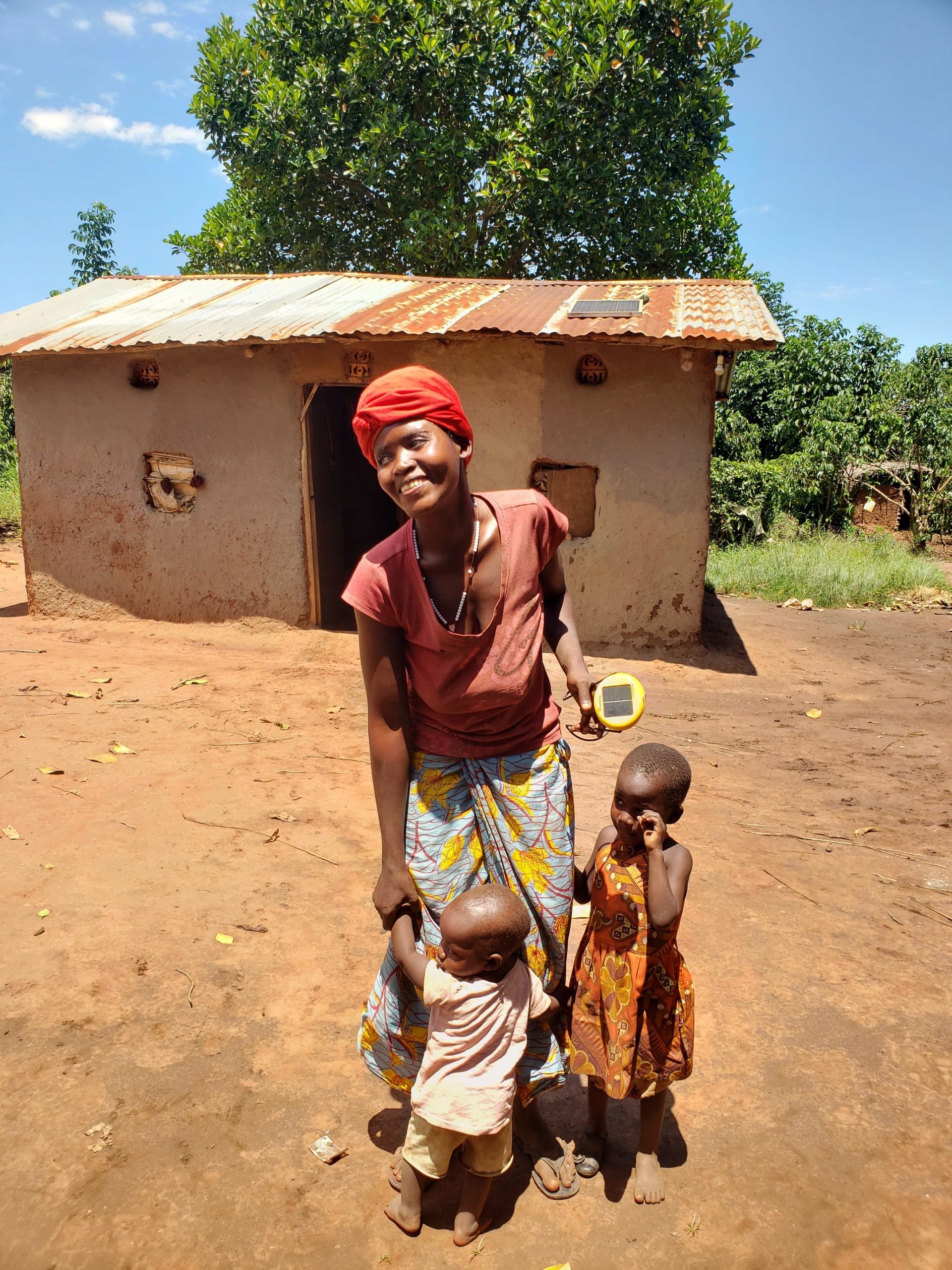Saraphina
Saraphina, a 27-year-old mother of five, lives in a peaceful village outside the town of Kikonda in central Uganda. Saraphina’s husband, a Village Health Volunteer (VHT) responsible for educating members of his community about various health practices, told her about LTBLI’s Safe Births + Healthy Homes project and the benefits of giving birth in a clinic. (The local District Health Office considers VHTs to be the “first level of primary care” in the region).
Saraphina gave birth to her child, eleven-month-old Jumba Mati, at the Kikonda Health Clinic with help from a trained midwife There, she received a solar light through the Safe Births + Healthy Homes program.
Before the solar light, Saraphina had to breastfeed in the dark. “Now I feel safer and better able to take care of my baby at night,” she explains, adding with a sigh of relief, “the solar light helps me feel less afraid of fire.” The open flame of a kerosene lamp also can prove deadly in the presence of a mosquito net, which is highly flammable, but the family can now sleep under the bed net without fear. Saraphina is relieved to no longer have to make the daily tradeoff between risk of fire and exposure to mosquito-borne illnesses for her family. Since receiving the light, she has thrown away her kerosene lamp.
Saraphina continues, “I now no longer have to choose between food and kerosene, referring to nights when she and her husband had to make the tough decision to spend that day’s money on fuel for their lamp instead of food for their children.
With the savings from her solar light, the family’s stress – and hunger – have both reduced greatly. As she looks towards the future, Saraphina’s sights are set on buying another chicken coop so she can increase her income. She hopes that the growing financial freedom from both the solar light and her livestock investments will eventually allow her to send her fourth child to school, something she cannot afford today.
In the meantime, one thing is clear: the solar light is hers. She smiles when she shares that her husband needs to ask her permission in order to use it.
Despite the hardships she has faced, Saraphina is a confident woman in control of her future. When asked if she wants more kids, she laughs and says, “yes, but not until my youngest is six years old.” She points to her upper arm, where her contraceptive implant lies. After its three-year life expires, she will go back to the health clinic to get another. She has it all planned out.

